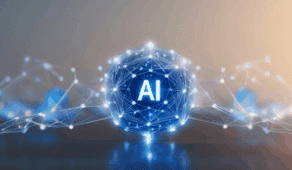Who cares about Google’s cookie timeline?

On April 23, Google delayed the deprecation of 3P cookies to 1Q 2025 due to concerns raised by the UK’s CMA (antitrust authority) and ICO (privacy authority). The delay itself is not terribly surprising, and the fact that it was only shifted by one calendar quarter does not seem material.
Nevertheless, and predictably for an industry as large and diverse as programmatic advertising, reactions in the marketplace have ranged the full gamut, depending on the commentators’ perspectives.
The Google delays have become the story
Some skeptics have said with great conviction and a certain amount of schadenfreude that this delay is not the last and that there will inevitably be more. Maybe many more.
At the extreme, some have embraced the idea that the series of delays indicate that full cookie deprecation from Chrome will never happen. These absolute denialists tend to be people and companies with a vested interest in the status quo, reliant on 3P cookies, unprepared for change, who would prefer that it never happens. Their opinion reflects their fears.
Meanwhile, many journalists who cover Google and adtech make light of it, with quips about cookies crumbling or not. For them, the story has evolved beyond the ultimate demise of cookies and implications for the industry; it has become the story of ongoing delays.
While these articles are clever and amusing, they in effect validate the skeptics’ views by focusing not on the impact of signal loss, but on Google’s struggle to actually make it happen.
The genie is out of the bottle
There is also a growing cohort of adtech companies who dismiss the continually shifting timeline as irrelevant. Many companies have been developing innovations inspired by the threat of cookie deprecation since early 2020, many of which have value propositions that go beyond just filling the gap left by cookies.
These emerging solutions are now genies that are out of the bottle, and cannot be put back due simply to delays. Indeed, whether cookie deprecation ever actually occurs, new competing technologies will chip away at different functions cookies have served.
At Dstillery, we clearly identify with this perspective. Our ID-free® technology uses AI to do behavioral targeting without any user tracking at all. It is 100% privacy compliant, with no consumer tracking or profiling via cookies or any other IDs. What’s more, ID-free performs 2.5X better than cookie-based user targeting, and delivers significantly greater scale.
ID-free’s value proposition is more than a cookie replacement
Whether or not cookies ever go away, we see a bright future for ID-free.
Some of our clients are already using it as a standalone alternative to user targeting, with superior performance, scale and privacy.
Some are using it to complement their user targeting, boosting reach while adding campaign efficiency.
Some are using it to replace crude and less effective content-based contextual targeting.
And some clients in the healthcare industry and in Europe are using it today to address privacy-based user targeting constraints that are particular to their industry and geography.
We have a lot more ID-free innovation in the pipeline, as do many of our adtech peers. Our clients and partners are hungry for more.
While it is still highly uncertain, it seems safe to assume that cookies will be retired from Google’s Chrome within the next 12 months. But maybe not. Who cares?
The genie of innovation is out of the bottle. The industry ought to focus less on debating Google’s timeline and more on the benefits from the wave of adtech innovation that it has inspired.


